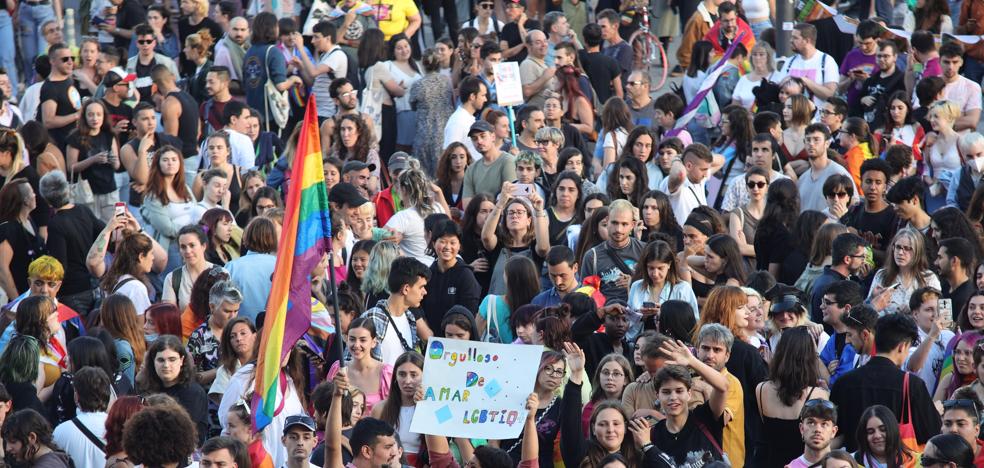LGTBI Pride March in Bilbao: «Each letter of the collective has its own problems»
Thousands of people have obtained in the LGBTI pride march. /
The LGTBI Pride march in Bilbao denounces “hate” towards transsexuals and other types of violence
The denunciation of transphobia has marked the passage of the LGTBI Pride march held on Tuesday afternoon in Bilbao. Behind the banner that opened the way, thousands of demonstrators were running, most of them very young and in a festive spirit, happy, but not unaware. Men, women and those who proclaim themselves non-binary individuals, have commons and particulars. “Each letter of the collective has its own problems,” says Hodei. “For example, lesbians are underrepresented, bisexual people are rejected inside and outside our environment, and aromantic or asexual people are not widely recognized.”
The criminalization of prostitution was questioned in a manifesto read at the end of the rally. The precariousness of transsexual people without means is exacerbated, according to the text, with measures that do not entail economic alternatives. The E28 coordinator, convener of the meeting, also alleges that the attacks against the members of this community have increased and many of those questioned associate it with the increase of the extreme right.
The homophobic crime of Samuel Luiz last year or the recent attack on the gay café bar in Oslo are the tip of a huge iceberg, as microviolences are so frequent that they are often internalized as something practically natural. Ana, Andrea and Maider agree on the answer. “We are judged all the time,” they explain with assumed resignation. “It’s about looks, comments and insults,” they add.
The public with another sexual and gender identity has been revealed for a long time as a greedy market niche. The organizing entity denounces that the Bilbao Bizkaia Harro is an attempt to “instrument and commercialize” these days that celebrate diversity. “If Pride becomes a party, another Aste Nagusia for companies, fine, but what does it bring to those of us who suffer discrimination every day,” says José, another participant. “What we need is the union to fight for our rights and inclusive and evaluable sex education, not just half an hour of talk every March 8.”





